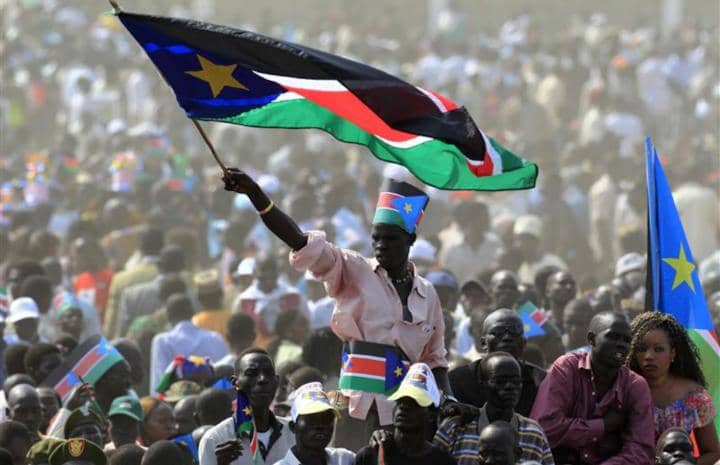Juba, July 9, 2025 – South Sudan today marked its 14th Independence Day with mixed emotions—celebration, reflection, and powerful calls for urgent reform from political and civil leaders.
While the country’s top leadership called for unity and peace, opposition voices reminded citizens of unfulfilled promises and lingering governance challenges.
Thousands gathered across the country to honor July 9, 2011, when Africa’s youngest nation gained independence from Sudan.
National flags flew high in Juba, but so did the voices of those urging the government to deliver on the dreams of freedom, prosperity, and justice that inspired the liberation struggle.
President Salva Kiir, who addressed the nation in a televised speech, highlighted peacebuilding as a national priority. He reaffirmed the government’s commitment to implementing the 2018 Revitalized Peace Agreement, stabilizing the security sector, and preparing for democratic elections.
He also acknowledged the hardships faced by South Sudanese but said the government was “steadfast in steering the country toward a peaceful and prosperous future.”
However, critics noted President Kiir remained silent on several key issues raised by civil society and the international community, including the delayed reopening of parliament, the need for electoral reforms, and the status of First Vice President Dr. Riek Machar, who was arrested earlier this year amid renewed conflict in parts of the Upper Nile region.
In a strongly worded statement, Dei Tut Weang Khor, Chairman of the South Sudan People’s Liberation Movement (SSPLM), said the country had strayed far from the ideals it fought for.
“The dreams of liberation have become nightmares,” Tut declared. “True independence means freedom from hunger, corruption, and oppression—not just the lowering of one flag and the raising of another.”
Tut criticized the current regime for what he termed “institutional decay” and demanded accountability, especially toward the youth and women who continue to suffer the brunt of violence, displacement, and poverty.
He called on South Sudanese across ethnic lines to rally behind genuine reforms and reject authoritarianism.Civil society organizations and religious leaders also used the day to call for peace and reconciliation.
“This is a time for healing and honest dialogue,” said Bishop Luka Lado of the Catholic Diocese of Juba.
“We urge our leaders to prioritize the lives of ordinary citizens over power struggles.”
As fireworks lit the sky in parts of Juba and music filled public spaces, the spirit of independence was alive—but tempered by the urgent plea for change. For many South Sudanese, today was not just a celebration but a call to return to the original promise of liberation: justice, dignity, and lasting peace.
ENDS







